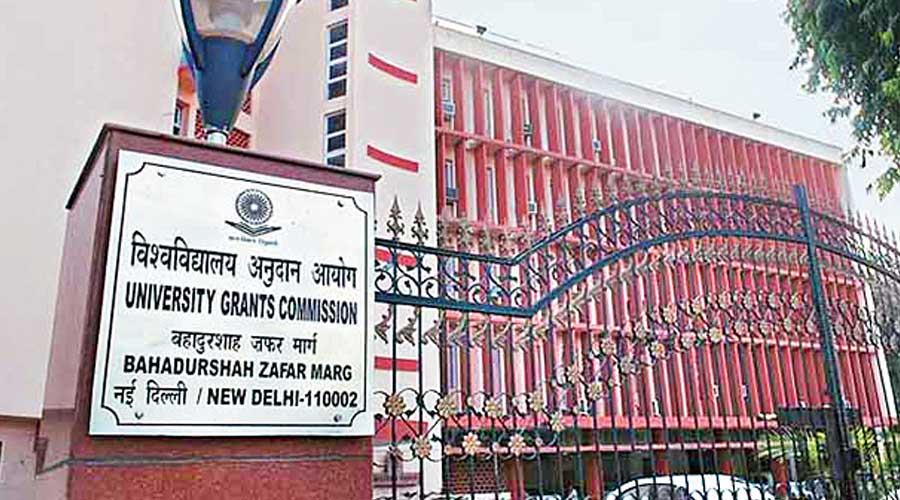The University Grants Commission (UGC) has proposed to allow top-ranked varsities to utilise the services of education technology (ed-tech) firms while offering fully online courses in the distance mode, months after the government itself acknowledged that such entities indulged in “exploitative practices”.
The provision to enlist ed-tech firms is part of the higher education regulator’s draft amendments to the UGC (Open and Distance Learning Programmes and Online Programmes) Regulations, 2020. The amendments are based on the report of a committee that the UGC has approved.
According to the draft amendments, higher educational institutions with accreditation scores more than 3.26 out of 4 from the National Assessment and Accreditation Council or those ranked in the top-100 in the corresponding category of the National Institutional Ranking Framework at least twice in the three preceding cycles shall be permitted to offer ODL and fully online courses without prior approval from the UGC.
As of now, the UGC does not permit 100 per cent online programmes in regular courses but has since 2020 been permitting such an arrangement in distance learning. In regular courses, universities can offer up to 40 per cent of the curriculum online. The commission also permits universities to let their students pursue up to 50 per cent of any course online or offline from another university.
Many academics have criticised the Narendra Modi government’s push for online education, citing poor quality and the country’s yawning digital divide.
The draft amendment also seeks to involve ed-tech firms in the proposed fully online courses in the distance mode.
To a question from CPM Rajya Sabha member P. Sivadasan, minister of state for education Subhas Sarkar said on Wednesday in a written reply: “Higher Educational Institutions (HEIs) may avail the services of educational technology firms for the purpose of technology maintenance, learning platform, advertisement and marketing, etc. However, entire responsibility of offering the online programme with or without support of educational technology firms will be with HEIs.”
The minister said in the same reply that the UGC and the AICTE had received complaints against ed-tech platforms. The education ministry has issued an advisory on the precautions that need to be adopted while opting for courses, tutorials and coaching offered by ed-tech firms, Sarkar said.
In December 2021, the government had issued an advisory cautioning that some ed-tech companies were trying to dupe parents with the lure of free services. According to the advisory, parents and students should avoid the automatic debit option for payment of subscription fees, a mode in which a customer provides his or her debit or credit card details to the service provider and money is transferred without the need for authorisation. The government had advised parents to go through the terms and conditions carefully before accepting any learning software/ device as IP address and other personal data can be tracked.
In February this year, minister Sarkar had spoken in the Upper House about the “exploitative practices” of ed-tech companies but the government had remained non-committal on regulating them.
Ed-tech firms have proliferated during the pandemic.
Prof. Rajeev Kumar, a faculty member at the School of Computers and System Sciences at Jawaharlal Nehru University, said US universities offered a lot of open and free platforms to help students learn online. Such services are more reliable than those offered by ed-tech firms in India, he said.
“There is no need to take the help of ed-tech firms in India for learning and preparation. There are Coursera machine-learning courses offered by Stanford University in subjects across disciplines. Students can avail themselves of the services, which have proven quality and are free,” Kumar said.
He said the quality of courses, assessment modules and integrity of assessment and results are important in case of online programmes.











